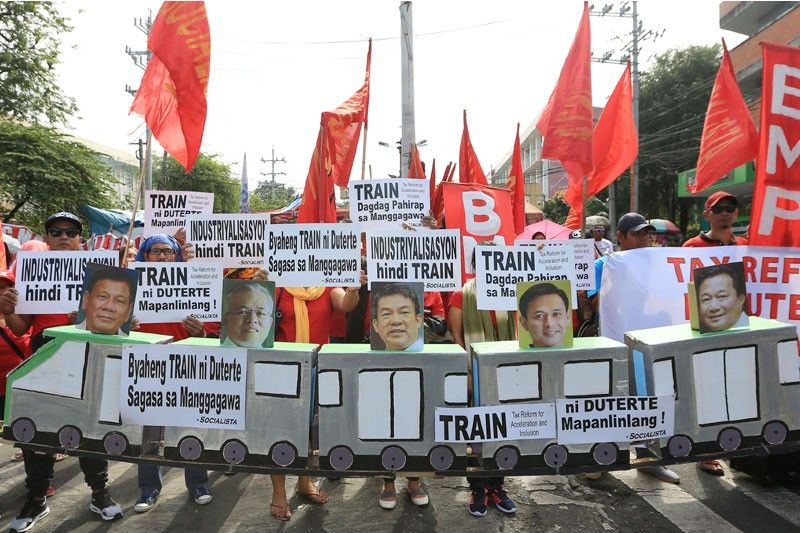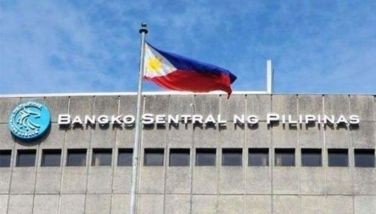Suspension of TRAIN may affect Philippines credit rating — economist

MANILA, Philippines — Suspending the implementation of the tax reform law will not only affect funding for infrastructure and other programs, but will also affect investor confidence in the country, according to an economist.
There have been proposals in the Senate for the suspension of the implementation of the TRAIN Law because of inflationary impact.
Senator Bam Aquino also recently filed a bill for the suspension of the imposition of higher fuel taxes should inflation exceed government targets.
Prices of goods and services in the country rose at a faster pace of 4.5 percent in April from 4.3 percent in March and 3.2 percent in April 2017. Out of the April rate, 0.5 to 0.7 percentage points can be attributed to TRAIN which imposes higher excise tax alongside the lowering of income tax
Other than higher excise taxes, a slew of world oil price increases and the depreciation of the peso against the dollar also contributed to the rise in inflation.
The National Economic and Development Authority (NEDA) expects inflation to peak in the first semester – but staying within the four percent range – before tapering off by year-end.
Ateneo de Manila economist Dr. Alvin Ang said inflation may remain elevated until July, but it may hover close to the upper end of the government’s target band of four percent.
“Inflation, as we have predicted, will be higher in May, June and July but will eventually go down but still at a high level. It will average close to BSP target band, so that should not lead to suspension,” Ang said.
He also cautioned against efforts to suspend the implementation of the tax reform law, saying this would affect the country’s credibility as a now investment grade nation. “TRAIN Law cannot be reversed because the cost to economy and credibility is larger,” he said, adding that TRAIN is a package for economic growth. If you suspend it, where will you get the revenues to fund growth and what will investors and ratings agency think.”
The Philippines now enjoys an investment grade credit rating, giving it more options in seeking overseas financing for various projects.
Budget Secretary Benjamin Diokno has said suspending TRAIN would do more harm than good as it would disrupt the government’s revenue targets and tax collection efforts.
Socioeconomic Planning Secretary Ernesto Pernia said NEDA has been working with the Senate committees to explain to them the impact of the law on inflation and would be pushing for the implementation of “robust” measures to curb inflation.
Among the solutions seen to bring immediate and long-term relief to price spikes include structural reforms such as the replacement of the quantitative restriction (QR) on rice with tariffication to boost supply and drive down prices significantly. The lifting of the QRs on rice is expected to reduce the retail price of rice by as much as P4.00 to P7.00 per kilogram.
Another is enhancing the logistics network for food supply especially in highly-urbanized areas to lower the transportation costs for foodstuff.
- Latest
- Trending























